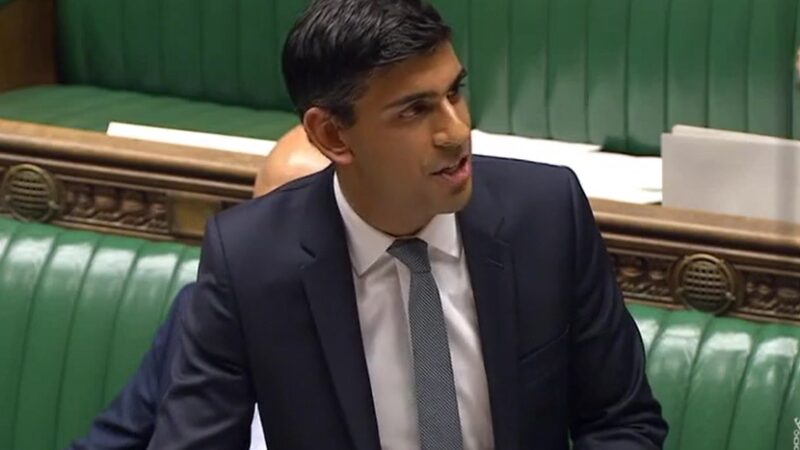The government has not done enough.

The stuttering economic response of the UK government to the coronavirus crisis is disappointing.
The budget statement on 11th March offered little. The government had another go and announced more measures on 17th March.
The centrepiece was £330bn of government-backed loans for businesses. The difficulty is that the loans, with interest, are repayable, unless the borrower goes bust.
The repayment will squeeze corporate cash flows, just as businesses may be recovering. The loans won’t stem the tide of bankruptcies unless people are able to buy goods and services. With the USA forecasting a possible unemployment rate of 20%, the risk of an economic depression looms.
People centred policies which boost household and business cash flows are needed. Here are eight suggested policies.
- Gurantee everyone an income
The UK needs to take a leaf out of the Danish government’s announcement that until 9th June it would cover 75% of employees’ salaries, if they promised not to cut staff numbers.
This is subject to a maximum of 23,000 Danish kroners (£2,890) per month. The employer would pay the remaining 25%.
The cap for hourly paid workers is 26,000 kroner (£3,266), equating to 90% of their salary.
This measure would enable companies to retain staff and not saddle them with loans. Such arrangements could apply to the UK as well, a comparatively rich country.
It is not just employees, but the self-employed, zero-contract hour workers and people on social security benefits need help too.
They can all be helped by the provision of Universal Basic Income (UBI). One estimate is that providing £1,000 cash per UK person per month would cost the government about £66bn a month. The UK can fix UBI for the emergency period at a higher amount.
2. Utility bills
The government should enact emergency legislation to freeze, reduce or waive all water, gas and electricity charges for a fixed period. This would help businesses and individuals to survive. Similar policies have been implemented in Western Australia.
3. No evictions
Millions of people live in council and private rented accommodation and face the danger of eviction. Rents need to be frozen for 12 months and legislation must make it unlawful to evict tenants falling into arrears.
4. Defer taxes
HMRC should defer the collection of PAYE, VAT, National Insurance Contribution and other business taxes for one year. Such a policy has been implemented in Sweden and would boost business cash flows and aid survival. The amounts would still be payable, but at a later date.
5. Reduce taxes
Tax liabilities on business profits could be decreased by accelerating capital allowances, a form of legal depreciation of eligible assets. The current rules are complex, but in general the ‘normal’ allowance is writing down allowance of 18% of the cost of eligible assets, or a special pool writing down allowance of 6%.
The government should allow businesses to charge 100% of the cost of assets, or the whole balance of any unused capital allowances, against taxable profits. The net effect of the early use of capital allowances would be to reduce taxable profits for the current year and related tax liabilities.
6. Change rules of relief for tax losses
The rules of relief of tax losses should be changed. The general rule is that losses can be can be carried forward and offset against future profits.
Under certain circumstances, businesses are also permitted to offset losses against taxable profits for the preceding 12 month period.
Rules should be changed so that companies can offset losses against the preceding five years’ profits. So if a business paid tax during the previous five years, it would get a rebate and that could aid its survival. This measure could apply to all businesses or selectively to specified sectors.
7. Extend business rate freeze to nurseries and gyms
The government has announced that “shop, pub, theatre, music venue, restaurant – and any other business in the retail, hospitality or leisure sector – will pay no business rates whatsoever for 12 months”. This is welcome but there appear to be omissions, such as nurseries. gyms and childcare centres. This policy needs to be revisited.
8. Compensate local authorities for loss of business rates
Local authority funding needs to be boosted to compensate them for the loss of business rates revenues. They also need additional funding to provide public services, including the deep-cleaning of all public spaces.
The above suggestions are by no means comprehensive or perfect, but they do put money into people’s pockets to enable them to buy goods/services and prevent an economic crash. They also boost business cash flows and chances of survival.
The die-hard neoliberals would ask how is all this to be funded. They need to be reminded that at the peak of the 2007-08 crash, the UK government provided guarantees and cash outlays of over £1tn to bailout banks.
There was also quantitative easing, i.e. printed money, of some £435bn. Unlike the last decade’s practice, the above proposals put money directly into people’s pockets. Some of the money would be recouped through income tax, council tax, fuel and other duties. The proposals would stimulate the economy and prevent a 1930s style depression.
Prem Sikka is Professor of Accounting at University of Sheffield and Emeritus Professor of Accounting at University of Essex. He is a Contributing Editor to LFF and tweets here.
Left Foot Forward doesn't have the backing of big business or billionaires. We rely on the kind and generous support of ordinary people like you.
You can support hard-hitting journalism that holds the right to account, provides a forum for debate among progressives, and covers the stories the rest of the media ignore. Donate today.



